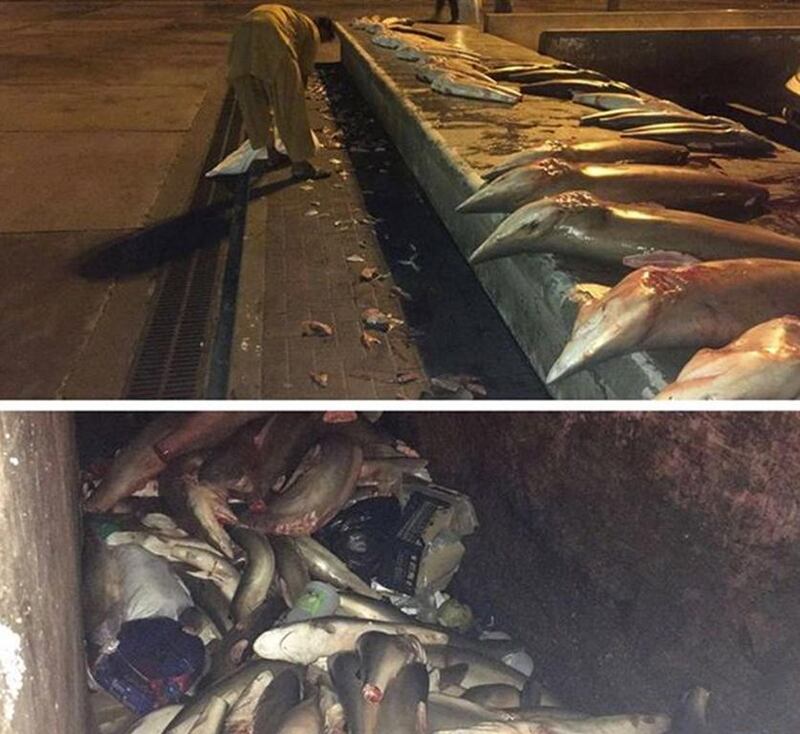DUBAI // Officials are carrying out snap inspections of fish markets across the country in a bid to end the illegal fishing of sharks in the UAE’s waters.
During the off-season, from February to July, the country bans the sale of any of the 29 indigenous or migratory shark species. Surprise inspections of markets have uncovered offenders and sharks have been seized.
A Dubai Municipality team last week found 80 sharks for sale by a fishmonger in Deira fish market who officials said was aware of the law banning the sharks’ sale during their migratory and reproductive season. The haul of sharks was taken to the municipality’s food safety department to be safely disposed.
“We have routine inspections on fish markets. We went at night because that’s when the fishmongers stock up and because they don’t really expect an inspection in the middle of the night,” said Ayesha Al Murr, head of the national resources section in the municipality’s conservation division.
While the seller was a first-time offender and only faced confiscation of his stock, she said, those caught repeating offences may be fined up to Dh10,000 and have their licences revoked.
“It’s not like they don’t know,” said Ms Al Murr. “We make it abundantly clear in multiple languages on signs pretty much everywhere that sharks are not allowed to be sold or caught during this time.
“This guy was a first-time offender, so we just took his stock away from him. Problem is, he probably already made money from it because these fins were cut off the specimens we found.”
It is common practice to remove shark fins to sell to Chinese traders, as the ingredient is common in shark fin soup, a national delicacy known as a cholesterol and heart-healthy meal in traditional Chinese medicine.
Despite several Chinese corporations and public figures such as former basketball star Yao Ming adopting a stance of zero tolerance towards finning sharks, the US organisation WildAid, which has been working on monitoring fish consumption around the world, reports that an estimated 100 million sharks are killed every year to supply the market in mainland China.
Ministerial decree No 500 of 2014 stipulates that during the fishing season, shark fishing is restricted to waters no less than five nautical miles off the UAE coast, and no less than three nautical miles from state-owned islands.
The municipality works with the Ministry of Climate Change and Environment to protect sharks and maritime biodiversity, as they are considered an important element of the marine ecosystem, said Alia Al Harmoodi, director of the municipality’s environmental department.
“Overfishing of sharks has been driven by increasing demand from Asian markets, such as China,” said Oliver John Kerr, senior marine conservation officer at EWS-WWF.
“This is a globalised market: fish markets from Europe to Asia see shark passing through their doors, and Dubai is no exception. The UAE has laws which control but do not prohibit the trade in shark products in the country, and, as such, products can still be sold in fish markets.
“Shark fin trade is one example that illustrates how consumer demand can have a negative impact on marine life. As a predatory species, the decline in shark numbers has a significant impact on the health of marine ecosystems.
“As of June 2015, about 25 per cent of the world’s shark species are threatened with extinction, primarily because of overfishing, whether targeted or incidental according to the International Union for the Conservation of Nature.”
Mr Kerr said that “people need to be aware of the state of our oceans and the laws that protect them”.
“Our oceans are on the verge of collapse,” he said. “But it is still reversible if we act now. For instance, by fishing at sustainable levels and complying with government regulations, fish populations are able to continually replenish individuals lost to natural death or fishing.”
nalwasmi@thenational.ae





